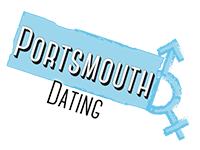A brief history of Portsmouth
The history of Portsmouth pre-dates the emergence of the city as a harbour of strategic importance to the defence of the country. Whilst much is written of the city from the time of the Plantagenets, the name Portsmouth first appears in 286AD when a Roman sea captain 'Carausius' was sent by Rome to what was already the naval harbour of Portsmouth to suppress piracy. In 897 King Alfred was using Portsmouth as a naval base, launching attacks on marauding Danes along the south coast and Solent in particular. It was in 1194 that King Richard I gave Portsmouth a Royal Carter granting it city status, whilst waiting to set sail from Portsmouth for France with 100 ships.
Despite being known now as the home of the navy, Portsmouth was for several hundred years known to have served as a great military gathering point for expeditions onto the continent of Europe. The Round Tower was built in the early 15th century, as the first line of defence for the harbour. Originally the Round Tower was built of wood then some sixty years later, it was re-built with stone. The square Tower was built during the reign of King Henry VIII. In 1449 all of the city's inhabitants were excommunicated by the Pope when the Bishop of Chichester was murdered by seamen from Portsmouth who had not been paid their dues by him. It wasn't until 1508 that the excommunication was lifted, during which time any misfortune was attributed to it. A year of great significance to the future prosperity of Portsmouth was 1495, as in this year King Henry VII gave the first order to build a dry dock. Not only was this the first in Portsmouth, it was the first in the country.
In 1545 the Mary Rose sank in the harbour whilst trying to sail out to the Solent to engage in battle with an invading French fleet. It just so happened on that day that King Henry VIII was watching from the city's fortifications, which lead to Portsmouth being accredited with the birth of The English national anthem. Apparently, "God save King Henry" was shouted out, to which the populous replied "Long to reign over us"! Contrary to popular belief the first National Lottery in England was not held in 1988, it was actually 1561. Queen Elizabeth I decided the fortifications of Portsmouth needed strengthening and to pay for it organised a scheme whereby 400,000 tickets were sold at 10 shillings (about £0.50p) each. With a first prize of £5000 it's the equivalent of a modern day lottery win of £5,000,000. However, to buy a ticket in the first place you had to be pretty rich as 10 shillings was about a fortnight's wages for an average worker in Tudor times. The raffle netted £200,000 and the total value of all the prizes was around £7,500. During the English Civil war Portsmouth was essentially a Royalist stronghold, but did eventually fall to the Parliamentarians when the navy went over to their side and blockaded the port.
During the 18th century the city continued to prosper, largely due to the fortunes of the port. On 26th November 1703 a great storm broke during which 13 'men-of-war' and over 800 houses were wrecked. During this century the area now known as Portsea developed, this resulted in the original harbour area of Portsmouth becoming known as Old Portsmouth. In 1729 the royal naval academy was established in the city, where it remained until 1872, when it was moved to Greenwich. In 1811 piped water arrived in Portsmouth, for those who could afford it and street gas lighting started to be installed in 1820. By 1871 the population had swollen to over 100,000 and it wasn't long before Portsmouth Cholera and Smallpox epidemics were raging through the city.
In 1914 the city again became a major point of embarkation for troops going to France and Belgium to fight in the First World War; this was repeated again during the Second World War, not least as an embarkation point for the D-Day landings. By 1936 the population of Portsmouth had risen to 260,000. Air raids during the Second World War not only hit and affected the naval docks, but also the housing stock of the city. So, after the war a major slum clearance and house building programme was instigated by the city council, which continued right up to the 1970s. Whilst the slums desperately needed clearing the result is that a lot of the densely packed new housing now looks bland and full of 'tower blocks'. Between the wars 23,000 men were employed in the naval dockyards. By 1950 this had dwindled to 9,000 and is now around 2,000. In 1951 46% of the jobs in the city were in manufacturing, but by 1966 this had fallen to 14% and is now below 10%. However, the city built several business and industrial parks and has been successful in attracting alternative employers to the city. IBM and Zurich Financial Services being two such companies. Like many cities, Portsmouth is again re-building itself and developing a more open feel as best it can. The raising of the Mary Rose in 1982 gave a tremendous boost to its tourist trade and the city is now looking forward with its £200 million development of the docks area. In 2005 Portsmouth was the centre of the celebrations marking the 200th anniversary of the Battle of Trafalgar, which included a Fleet Review by HM Queen Elizabeth II.
Famous people with connections to Portsmouth inlcude:
Isambard Kingdom Brunel - Engineer - Born 1806.
Charles Dickens - Author - Born 1812.
Rudyard Kipling - Author - Resident 1870s.
Arthur Conan Doyle - Author & founding member of Portsmouth FC - Resident 1880s.
Hubert George (HG) Wells - Author - Resident 1880s
James Callaghan - British Prime Minister - Born 1912.
Richard Henry "Peter" Sellers - Actor and Comedian - Born 1925.
Helen Duncan - Last women to be convicted of witchcraft in the UK, 1944 - Arrested in Portsmouth 1944.
Katy Sexton - National and international champion swimmer - Born 1982









